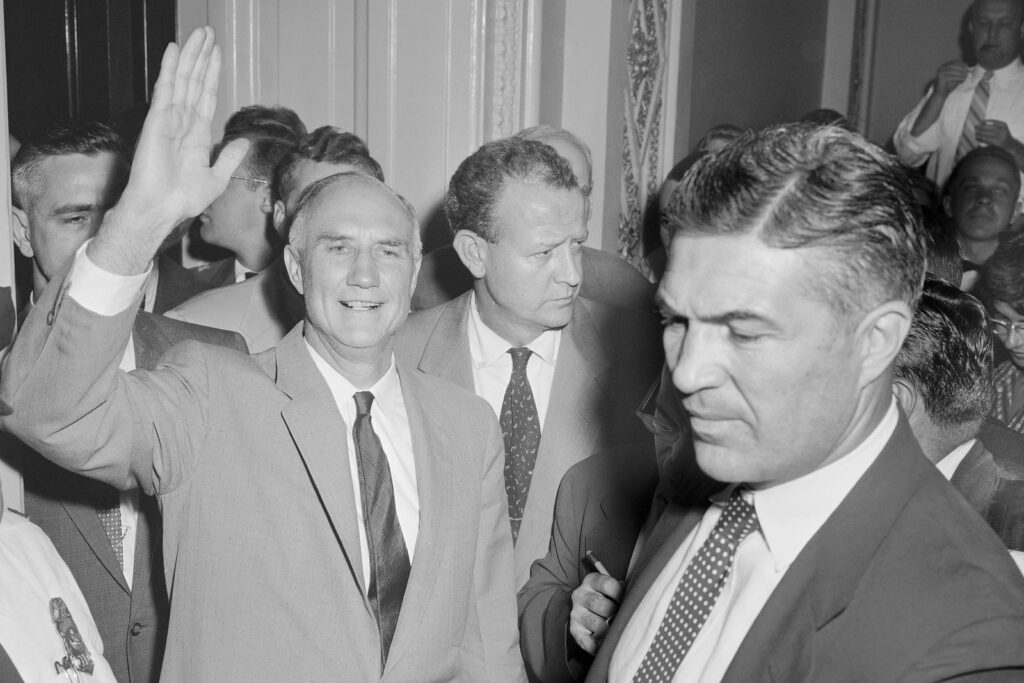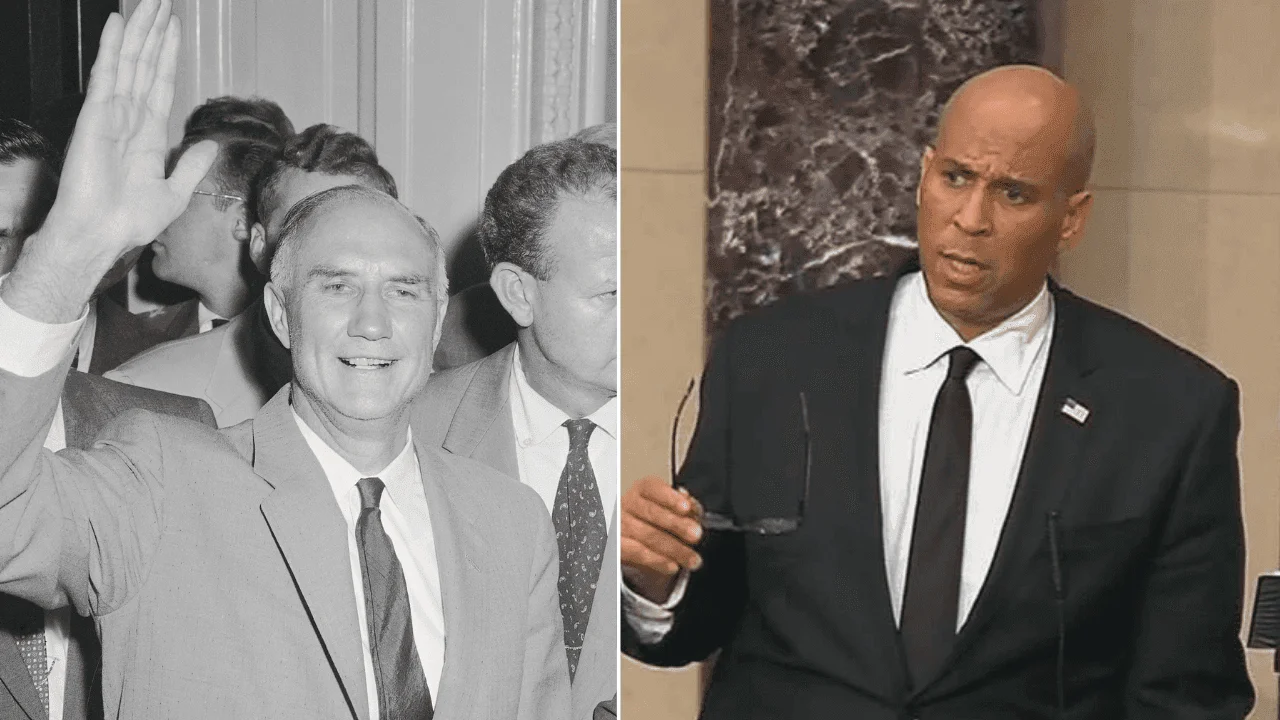Senator Cory Booker has made history by delivering the longest floor speech in U.S. Senate history, surpassing the previous record set by Strom Thurmond in 1957. Booker’s speech, which lasted an unprecedented 25 hours and 5 minutes, was a passionate protest against the Trump administration and its policies.
Breaking a Controversial Record
Booker’s speech exceeded Thurmond’s 24-hour and 18-minute filibuster, which was famously aimed at blocking the Civil Rights Act of 1957. In stark contrast, Booker’s marathon address was rooted in a call for justice, equality, and democratic values, making the moment especially significant.

A Stand Against the Trump Administration
Throughout his record-breaking speech, Booker criticized the Trump administration’s policies on civil rights, immigration, and economic inequality. He called for legislative action to protect marginalized communities and uphold democratic principles. His speech resonated with many who have been advocating for progressive change in the country.
Echoing the Legacy of ‘Good Trouble’
Booker concluded his speech with the iconic words of the late civil rights leader John Lewis: “Let’s get in good trouble.” His powerful message reinforced the importance of activism and standing up against injustices.
Public and Political Reactions
Booker’s historic speech sparked national discussions, trending across social media and drawing praise from civil rights advocates. Many lauded his commitment to justice, while political analysts speculated on its potential impact on future legislative battles and the broader political landscape.
What Comes Next?
Following this historic stand, the question remains: will Booker’s speech lead to tangible legislative change? As political tensions continue, his words serve as a rallying call for those fighting for justice and equality.
Senator Cory Booker’s record-breaking speech was not just a moment of endurance—it was a defining statement in modern American politics. His stand against the Trump administration highlights the ongoing struggle for civil rights and the enduring power of advocacy in shaping the nation’s future.




